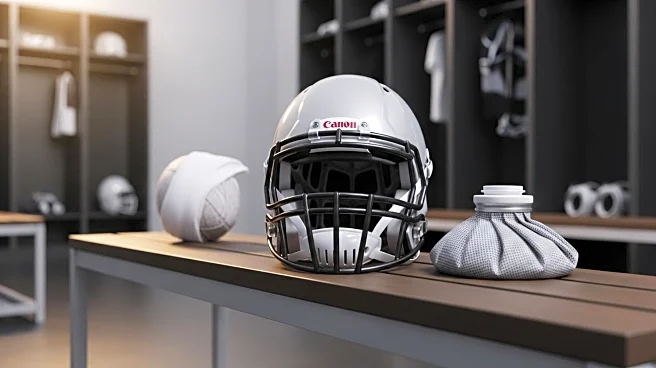What is the story about?
What's Happening?
Buffalo Bills tight end Dalton Kincaid was unable to participate in the Monday night game against the Atlanta Falcons due to an oblique injury. Kincaid, who has been a key player for the Bills, leads the team with 287 receiving yards and three touchdown catches this season. His absence was felt as the Bills aimed to recover from their first loss of the season. Kincaid had previously recorded a season-high performance with six catches for 108 yards in a recent game against New England. In his absence, Dawson Knox was expected to take on the primary tight end role, supported by rookie Jackson Hawes from Georgia Tech. Additionally, starting defensive tackle DaQuan Jones was also out due to a calf injury sustained during warmups.
Why It's Important?
Dalton Kincaid's absence is significant for the Buffalo Bills as he is their leading receiver, contributing substantially to their offensive strategy. His injury could impact the team's performance and their ability to bounce back from a recent loss. The reliance on Dawson Knox and rookie Jackson Hawes to fill the gap left by Kincaid may affect the team's dynamics and overall effectiveness in upcoming games. The Bills' ability to adapt to these changes will be crucial in maintaining their competitive edge in the NFL season.
What's Next?
The Buffalo Bills will need to reassess their offensive strategy in light of Kincaid's injury. Monitoring his recovery and potential return to the field will be essential for the team. The coaching staff may need to explore alternative plays and formations to compensate for the absence of their leading receiver. Additionally, the performance of Dawson Knox and Jackson Hawes will be under scrutiny as they step into more prominent roles. The team's medical staff will likely focus on Kincaid's rehabilitation to ensure a swift and safe return.
Beyond the Headlines
The injuries to key players like Dalton Kincaid and DaQuan Jones highlight the physical demands and risks associated with professional football. Teams must balance player health with competitive performance, often requiring strategic adjustments and depth in their rosters. The situation underscores the importance of having versatile players who can adapt to changing roles and responsibilities.














